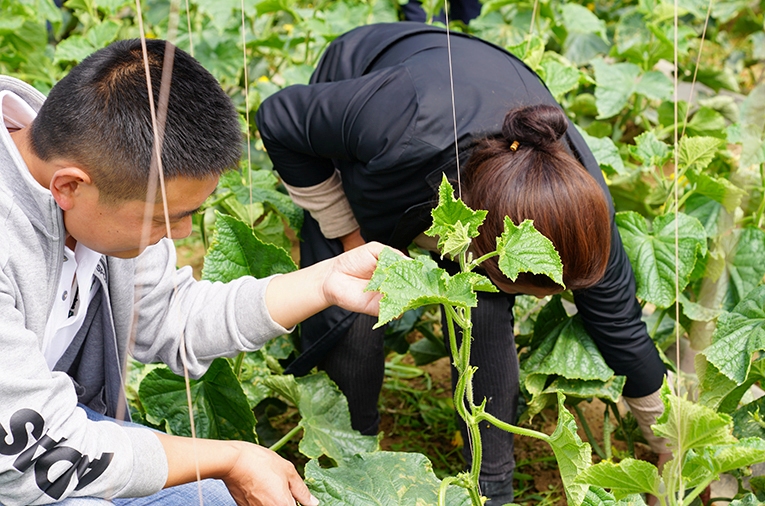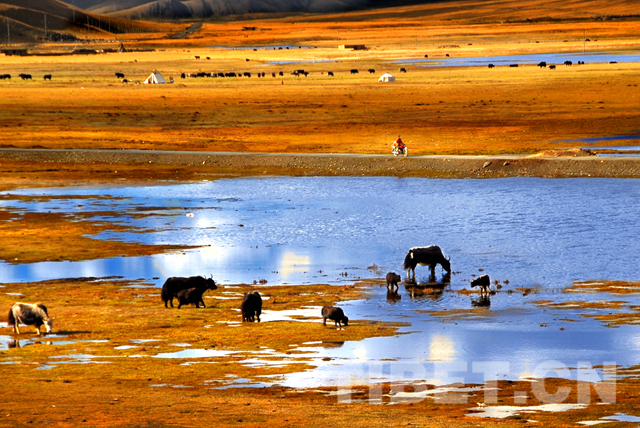Food habits change for nomads on grasslands in SW China
For 45-year-old Tenzin Dorje, a Khampa man, the nomads living on grassland nowadays have gone from having only a single selection of meat and dairy products to a variety of tastes to enjoy. “This is connected to continuous exchange with the outside world,” he said.
“We drink milk from a young age, then grow up on tsampa and yak meat. I used to think that eating vegetables was the same as sheep eating grass,” Tenzin Dorje joked. “Now, craving fruits and vegetables every day is not only healthy, but also good for our bodies.”“Before, the road conditions weren’t good. Even if you needed to buy vegetables it would be a big purchase, and you would need to consider how long they would last,” Tenzin Dorje said. “Now, we can buy vegetables basically once every two or three days. It’s not much, but there is still a lot of variety.”
Tenzin Dorje shows reporters his purchase of peppers, snow peas, and zucchini, and also nectarines, grapes, and watermelon.
Tenzin Dorje said that for a good life, eating healthy comes first.
Your Comment
Name E-mailRelated News
-
-

-
Damxung yak meat with "identification card" sell in Lhasa
Yak meat from Damxung County has long been famous and has become a national protected geographical indication product.
-
-
-

-
From treating patients to planting vegetables: Doctor couple's journey
Ciren Quzhen and her husband Gao Yongqian run an agriculture cooperative at Qiongda village of Dagze county in Lhasa.
-







